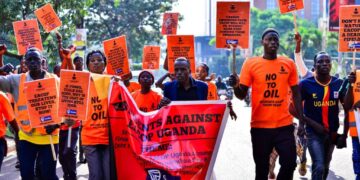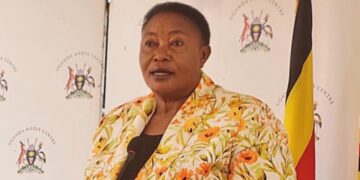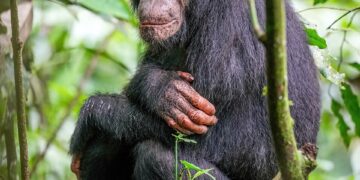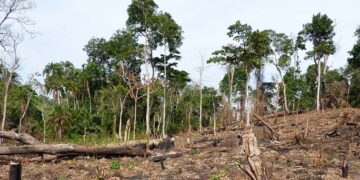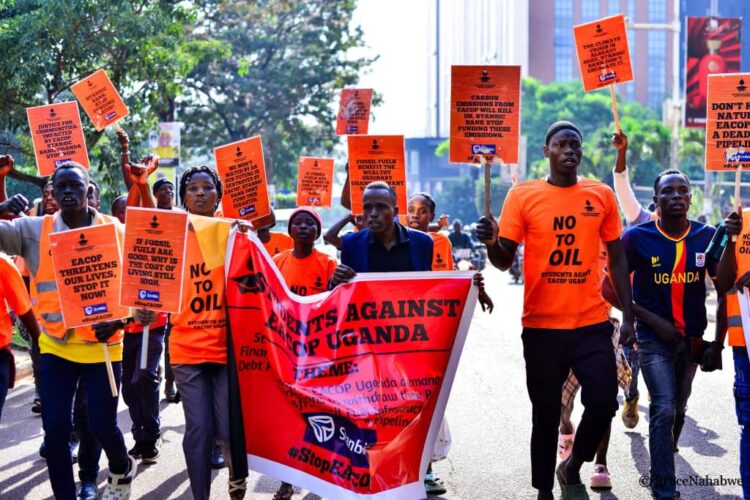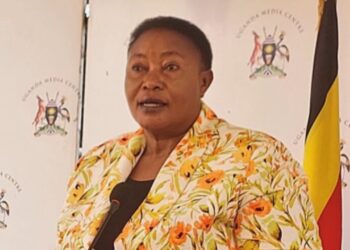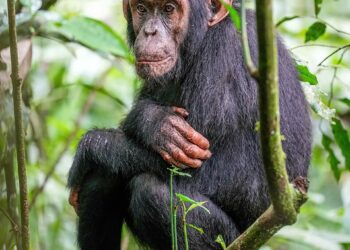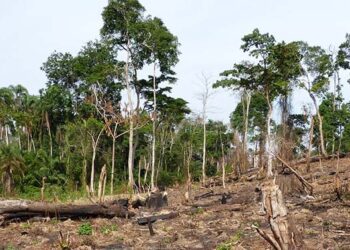By Ainembabazi Shallon,
The East African Crude Oil Pipeline (EACOP) has not only disrupted livelihoods it has torn through the social and environmental fabric of communities in both Uganda and Tanzania. Behind the green washing promises of jobs an development lies a trail of displacement, fear, and silencing. Families were being forced off their ancestral lands often without fair and timely compensation. Some were coerced into signing agreements especially women they could barely understand. Once-thriving farmlands now lie bare marked by survey pegs and security patrols.
The violence is not just physical it’s systemic community members, activists and human rights defenders who dare to question the project’s impacts face harassment and intimidation. Environmental and human rights defenders have been threatened, arrested, and surveilled simply for speaking out. In Uganda, activists calling for climate justice and transparency through peaceful protests have found themselves in police cells instead of public forums this being a true cost of EACOP. 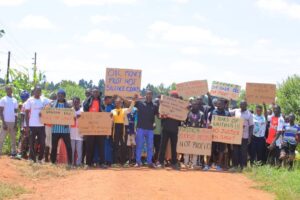
In addition, EACOP project that was supposed to bring prosperity has instead deepened poverty, food insecurity, caused land degradation, led to loss of biodiversity, inequality, fueling fear and mistrust. Amidst this darkness there has always been hope several financial institutions and insurers have withdrawn their support from the pipeline. Their withdrawal is a powerful moral stand a recognition that fossil fuel expansion in the midst of a climate crisis is indefensible.
But withdrawal alone is not enough. Justice demands more than walking away instead those same financial institutions must now channel their resources toward the communities they once endangered by investing in community-led renewable energy initiatives. Across Uganda and Tanzania, women’s cooperatives, youth innovators, and local organizations are building solutions from the ground up: solar-powered irrigation for smallholder farmers, clean cooking technologies to reduce indoor pollution, and mini-grids that bring power to off-grid villages. These are the projects that truly empower people creating jobs, restoring dignity, and protecting the environment.
Furthermore, traditional cooking methods like firewood and charcoal pose significant threats to both the environment and human health. Deforestation and charcoal burning contribute to global warming, while smoke inhalation leads to respiratory illnesses, particularly affecting women and girls who are primary users.
Investing in renewable energy initiatives most especially clean cooking is not an act of charity it is an act of reparation and responsibility. Financial institutions must move from extraction to empowerment from profit-driven destruction to people-centered development. The billions once set aside for oil pipelines must now flow into projects that restore both ecosystems and livelihoods.
As the world moves toward a just energy transition, Uganda and Tanzania must not be left behind. The exit from EACOP should be the beginning of a new commitment one that centres communities, protects defenders, and rebuilds trust. As we look up to COP30, the call is clear finance must serve the people not fossil fuels. The future of Africa lies not in pipelines of oil, but in the power of people leading their own renewable energy revolution.
